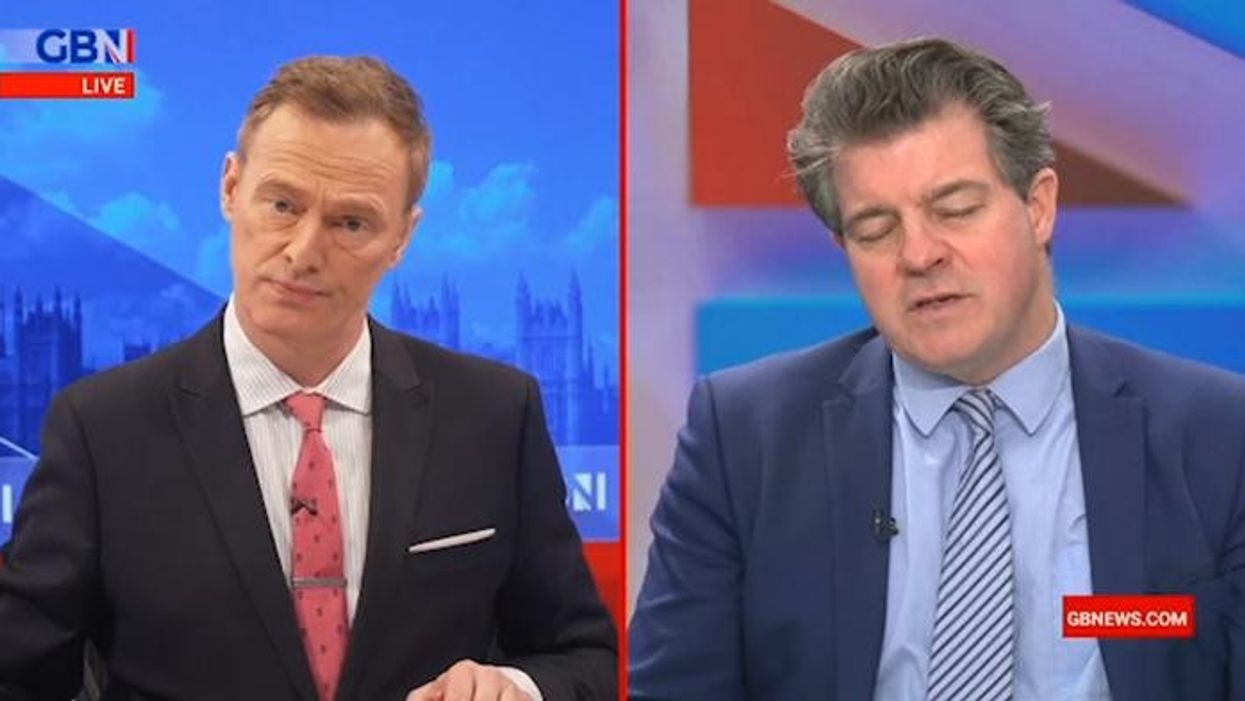Britons urged to ‘check’ state pension as 1.6 million pensioners face paying tax for first time
Fiscal drag is expected to impact pensioners this year with over million households expected to be dragged into paying tax
Don't Miss
Most Read
Trending on GB News
Older Britons are being urged to “check” their state pension payments as 1.6 million people are expected to be pay tax on their retirement income for the first time.
Some 1.6 million pensioners are forecast be dragged over the income tax threshold by 2027-28, according to research carried out by the Liberal Democrats.
Furthermore, the Resolution Foundation claims the average taxpaying pensioner is expected to be £1,000 worse off by this tax year due to the impact of fiscal drag.
This is the term used to describe when tax allowances are kept at the same level while incomes and inflation continue to rise.
During his Autumn Budget 2023, Chancellor Jeremy Hunt reiterated that tax thresholds will remain frozen until April 2028.
Thanks to the triple lock boost, the full new state pension is expected to exceed £11,000 for the first time ever.
Do you have a money story you’d like to share? Get in touch by emailing money@gbnews.uk.

1.6 million pensioners face being dragged into paying more tax
GETTY
While this is lower than the personal allowance of £12,570, anyone with additional retirement income could be pulled into paying more to HM Revenue and Customs (HMRC).
With Hunt’s allowance freeze in place, over one million pensioners risk being pulled into higher tax brackets over the next few years.
Kelly Sizer, a senior manager at the Low Incomes Tax Reform Group (LITRG), outlined the potential problems that could arise for Britons due to the way state pensions are taxed.
Notably, Sizer cited the way in which HMRC applies tax charges to retirement payments which means Britons have to “check” they are paying the right amount.
She explained: “Checking that your PAYE code is correct, checking a simple assessment or completing a tax return can be challenging if you need to work out the correct amount of state pension for a tax year.
“This figure is not always easy to work out, because the state pension is taxed based on how much you are due to receive for the year, not how much you actually receive.
“The state pension is usually paid four-weekly, so the amounts you receive do not always neatly match up with the taxable amount for the year.
“Even if HMRC pre-populates the state pension figure on your tax return (if you are filing online), you should check that you agree the figure is correct.”
According to the tax expert, HMRC and the Department for Work and Pensions (DWP) should make a conscious effort to let pensioners know about their potential liabilities.
Sizer added: “We think that DWP and HMRC should work together to ensure that pensioners are warned about possibly needing to pay tax on their state pension in future.
LATEST DEVELOPMENTS:
 Fiscal drag is dragging Britons into higher tax brackets GETTY
Fiscal drag is dragging Britons into higher tax brackets GETTY “This should include setting out how the tax will be collected and the likely tax liability.
“Some words of warning could, for example, be included with the state pension notification letters that DWP send out each spring in advance of the April pension increases.”
Both the new and basic state pension payments will be awarded an 8.5 per cent rate hike this month under the triple lock.
Following the Spring Budget, the Government has committed to keep the triple lock going forward.









